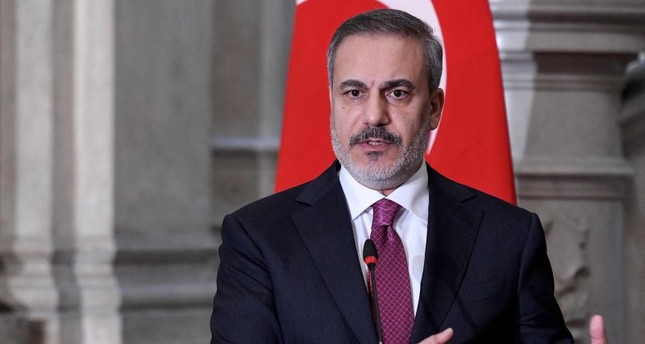Turkey Says It Does Not Seek Confrontation With Israel in Syria Amid Rising Tensions
By Kardo Roj
DAMASCUS, Syria (North Press) –
Turkish Foreign Minister Hakan Fidan stated on Friday that Turkey does not seek any direct confrontation with Israel inside Syrian territory, following an escalation of rhetoric and military actions between the two countries. His remarks, reported by Reuters, come in response to Israeli accusations that Ankara is working to establish Syria as a Turkish protectorate.
The statement follows Turkey’s demand on Thursday for Israel to withdraw from Syrian territory, after an Israeli security meeting discussed Turkey’s growing influence in Syria and the broader region.
Tensions escalated earlier this week when Israel carried out a series of airstrikes targeting military installations in Damascus, Homs, and Hama. Israeli officials described the strikes as a warning to the new Syrian administration, while also accusing Turkey of seeking long-term military entrenchment in northern Syria.
Fidan, in an interview with Reuters, criticized the Israeli military campaign, arguing that it undermines Syria’s ability to combat terrorist groups, including remnants of Islamic State (ISIS).
“The Israeli attacks weaken the Syrian government’s capacity to deter threats, including ISIS, and create further instability,” he said, emphasizing that Turkey does not intend to dictate Syria’s foreign relations, including any potential Israeli-Syrian understandings.
The growing tension between Israel and Turkey adds another layer of complexity to Syria’s ongoing geopolitical struggle. Turkey has long maintained military influence in northern Syria, backing opposition factions and establishing a foothold through both direct deployments and support for local actors.
Israel, meanwhile, has conducted frequent airstrikes in Syria, but it has recently voiced concerns over Ankara’s increasing involvement in Syrian affairs. Israeli officials argue that Turkey’s military and political moves could shift regional power balances in ways that pose long-term security risks.
Turkish officials, however, maintain that their actions in Syria are primarily focused on border security and counterterrorism efforts, particularly against the Kurdistan Workers’ Party (PKK) and affiliated groups.
The recent developments highlight shifting power dynamics in Syria following the establishment of a new government in Damascus. While Turkey has signaled its willingness to engage with the new leadership, Israel’s increased military activity suggests a more aggressive stance against perceived threats in the region.
The international community has yet to mediate between the two regional powers, but analysts warn that continued military escalations—whether through direct strikes or proxy confrontations—could further destabilize Syria and heighten tensions across the region.
As Ankara and Tel Aviv navigate their complex relationship in Syria, the coming weeks may reveal whether diplomatic dialogue or further confrontation will define their interactions moving forward.

